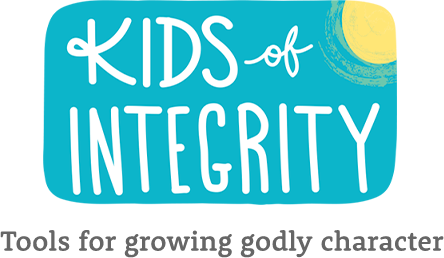Courtesy

Creative discipline
Discipline should never be neglected, but some discipline techniques are more effective than others. If you have doubts about your past success in shaping your children’s verbal responses, try these ideas. Your goal is to be firm, but affirming.
For problems due to speaking without thinking first
Biblical basis
Proverbs 12:23 “A prudent man keeps his knowledge to himself, but the heart of fools blurts out folly.”
Proverbs 10:19 “When words are many, sin is not absent, but he who holds his tongue is wise.”
Suggested disciplinary action
When your child speaks harsh or hurtful words, take a bin full of blocks or other small items and dump them on the floor. Instruct your child to pick up the spilled items. While they are picking the items up, talk to them about the power of hurtful words.
- Is it harder to dump toys or pick them up?
- How many toys did you have to pick up?
- Is it harder to speak or remain silent?
- We can clean up dumped toys, but can we clean up the hurt that your unkind words have caused?
- When are you most likely to say hurtful things?
Discuss how easy it is to say things without thinking, and how words that have been spoken cannot be taken back. Remind your child that the more we say, the more likely we are to sin (Proverbs 10:19). Instruct them that sometimes it is better to be quiet than speak aloud the words that we are thinking. The toys can be put back in a bin, but the hurt (mess) caused by saying unkind words can be impossible to clean up completely.
Affirmation
Assure your child that you believe they want to control their tongue. Remind them that God will help them. Then read or quote Psalm 141:3: “Set a guard over my mouth, O Lord; keep watch over the door of my lips
” or Proverbs 16:24: “Pleasant words are a honeycomb, sweet to the soul and healing to the bones.”
Challenge your child to be someone who speaks words that heal rather than hurt. Pray, asking God to help your child guard his/her mouth.
For problems with speaking unkindly
Biblical basis
James 3:9-11 “With the tongue we praise our Lord and Father, and with it we curse men, who have been made in God’s likeness. Out of the same mouth come praise and cursing. My brothers, this should not be. Can both fresh water and salt water flow from the same spring?”
Suggested disciplinary action
When your child speaks inappropriately, “cursing” another person, have them gargle with a small spoonful of salt water or put some salt on their tongue. Ask the following questions to help your child understand that taste of salt water is a reminder to speak words that are kind and refreshing to others, rather than hurtful, stinging words.
- How did the salt taste?
- How do you think your words sounded to ________?
- Would you be able to drink water from a salt spring?
- If you were lost in the desert and horribly thirsty, which would you want to find: a salt spring or a freshwater spring?
- Which kind of water is more refreshing, salty or fresh?
- What kind of words would you rather speak? Salty or fresh?
Affirmation
Pray with your child, asking God to wash the sin out of his/her heart so that he/she can produce encouraging words instead of hurtful words. Use Luke 6:45 as a basis for your prayer, which says, “The good man brings good things out of the good stored up in his heart, and the evil man brings evil things out of the evil stored up in his heart. For out of the overflow of his heart his mouth speaks.”
- Acceptance
- Adaptability
- Attentiveness
- Christmas
- Compassion
- Confidence
- Consideration
- Contentedness
- Cooperation
- Courage
- Courtesy
- Discernment
- Easter
- Faithfulness
- Forgiveness
- Generosity
- Gentleness
- Gratitude
- Harmony
- Honesty
- Humility
- Joy
- Kindness
- Obedience
- Patience
- Perseverance
- Respect
- Responsibility
- Reverence
- Righteousness
- Self-control
- Thanksgiving

